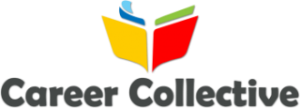Your first ninety days can set the tempo for a finance career. Treat the study as a rehearsal for real work, and connect each module to a task you would perform on day one. If you plan an accounting degree or a master’s in finance, align your effort with the weekly cycle that drives teams.
Build A Career Thesis You Can Test
Set one practical question to steer learning, such as how a mid-size firm can shorten the month-end with cleaner controls. Every reading, lab, or case proves or refines that thesis. This simple filter keeps focus tight and turns notes into action instead of trivia.
Learn The Close, Not Just The Concepts
Great hires help a team finish the month calmly. Practise a light trial balance, journals for revenue and accruals, and a tidy reconciliation routine. When your classes model these steps, an accounting degree becomes a training ground rather than a set of isolated topics, and you arrive ready to contribute.
Model Scenarios With Plain Tools
You do not need exotic software to think in numbers. Build a driver-based forecast in a spreadsheet, then add a script for sensitivity testing. A master’s in finance will introduce valuation, risk, and portfolio logic; connect those ideas to the same model so decisions reflect both control and growth.
Develop A Control Mindset Early
Controls are not paperwork. They are habits that make results reliable. Map who prepares, who reviews, and what evidence proves each step. If you intend to pursue an accounting degree, practice clear narratives for auditors and managers. When you switch hats during a master’s in finance, apply the same discipline to models and memos.
Communicate Numbers That Travel
Stakeholders read at speed. Turn dense tables into a one-paragraph brief that states trend, cause, and action. Use one chart per idea, label, and keep colours consistent across decks. In time, your work speaks before you walk into the room, which lifts trust and shortens meetings.
Train For Ethics And Judgment
Grey areas appear fast in peak months. Learn how codes, whistleblowing paths, and disclosure rules work in practice. Discuss conflicts between growth targets and cautious controls. Whether you pursue an accounting degree or a master’s in finance, employers prize people who pause, ask, and document decisions.
Shadow Operations To See Costs
Sit with sales, logistics, and service for an afternoon. Watch how orders land, where delays creep in, and which reports people ignore. The exercise turns theory into empathy and reveals metrics that matter. Budgets and forecasts improve when they reflect how teams actually move.
Design A Personal Skills Sprint
Pick four skills for twelve weeks: reconciliations, data cleaning, slide writing, and concise emails. Track a daily set for each and store examples in a portfolio. The sprint adds visible progress to your transcript and proves rhythm and reliability to any hiring manager.
Build A Feedback Loop With Mentors
Do not wait for annual reviews. Ask a tutor or mentor for fortnightly checkpoints that focus on one file, one deck, and one decision you made that week. Short, specific notes compound and teach you to accept critique calmly and to correct courses quickly.
Prepare For Interviews With Evidence
Replace generic claims with artefacts. Bring a reconciled trial balance with redacted numbers, a two-page forecast with assumptions, and a one-page memo that explains a variance you analysed. These samples show what an accounting degree taught you and how a master’s in finance sharpened your judgment under time pressure.
Conclusion
A study truly pays off when it mirrors real work. If you anchor habits to the monthly cycle, connect models to decisions, and write clearly for busy readers, you grow faster and stay useful under pressure. That focus benefits students who choose an accounting degree as much as candidates who plan a master’s in finance.
For applied modules, small-class coaching, and pathways that link classroom tasks to real finance routines, contact PSB Academy.




